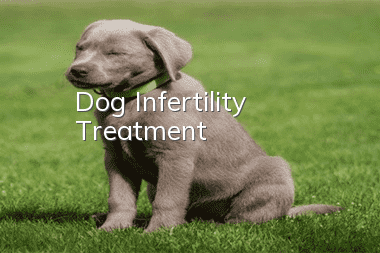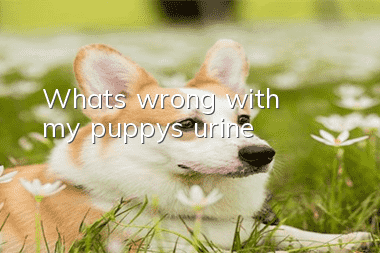Dog Infertility Treatment

Pet dogs are really similar to humans in some ways. People have infertility, and dogs also have it. Both male and female dogs can suffer from infertility. Now Taogou.com will discuss with you the issue of dog infertility.
English Foxhound
Infertility in male dogs refers to the inability to ejaculate during mating, or the semen discharged has no sperm, dead sperm, sperm deformities, or a low survival rate that cannot fertilize the egg. There are many reasons for the occurrence, such as poor feed quality, lack of vitamins (mainly vitamins A and E), insufficient exercise, excessive breeding or long-term lack of breeding: old and weak male dogs, reproductive organ diseases (cryptorchidism, testicular atrophy, testicular and Epididymitis, etc.) or infection with certain diseases, such as brucellosis, tuberculosis, endocrine disorders (androgen deficiency, etc.). The main symptoms are that the male dog has no sexual desire, the penis of the female dog cannot erect when it is in estrus (impotence), or it does not ejaculate after erection. Check for poor semen quality.
The method of treating infertility in male dogs is to improve the feeding and management conditions and provide sufficient nutrients to enhance physical fitness. Strengthen physical exercise and breed appropriately to avoid too much or too little. Reproductive tract diseases should be treated appropriately. For male dogs lacking sexual desire, 10 mg of methyltestosterone (methyltestosterone) can be taken orally or 20 to 50 mg of testosterone propionate (testosterone propionate) can be injected intramuscularly per time. Male dogs that are ineffective in treatment or are old and frail should be eliminated from breeding.
Infertility in female dogs refers to female dogs that are over 1.5 years old or have been able to estrus and mate normally in the past. However, if they do not appear in estrus for a long period of time (10 to 24 months), or they have abnormal estrus and are infertile after repeated matings, it can be treated. Think it's infertility. Causes of female dog infertility include congenital causes (such as hermaphroditism, underdevelopment of reproductive organs, etc.), improper feeding and management (such as simple feed, lack of certain essential amino acids, inorganic salts, vitamins, etc.); female dogs that are too fat, too thin, too old, etc. Old and frail, infected with certain diseases (such as brucellosis, tuberculosis, ovarian cysts, endometritis), etc. The main symptoms are that they are not in estrus, or they are in estrus but are infertile after repeated mating, or even unable to mate.
The prevention and treatment method of female dog infertility is to try pregnant horse serum, chorionic gonadotropin and estrogen for treatment. Dosage: Pregnant horse serum (refined products each contain 400 units, 1000 units, 3000 units) for dogs: 25 to 200 units/time, injected subcutaneously or intramuscularly, once a day or every other day. The dosage of chorionic gonadotropin is 25 to 300 units, injected intramuscularly. Diethylstilbestrol is 0.2 to 0.5 mg/time. In addition, feeding and management conditions should be improved. If it still cannot mate and fertilize, it should not be used for seed purposes.
It can be seen from the above that dog infertility is closely related to the food they feed. Therefore, when feeding your own dogs, it is best for friends to master some knowledge about nutritional matching. Prevent dogs from malnutrition.
- Teach you how to listen to your dog’s voice
- How to treat pyrozoonosis in dogs
- Do you know Alaskan Huskies? Are they easy to raise?
- Why does the puppy sleep every day?
- Why does my dog’s belly feel so hot?
- Reasons why dogs grow too slowly
- Symptoms and treatments for colds in dogs
- How to care for your dog’s face? Three Steps to Dog Facial Care
- What are the benefits of eating grain-free dog food for dogs?
- Fungal skin disease in dogs, be wary of it being common in both humans and dogs



